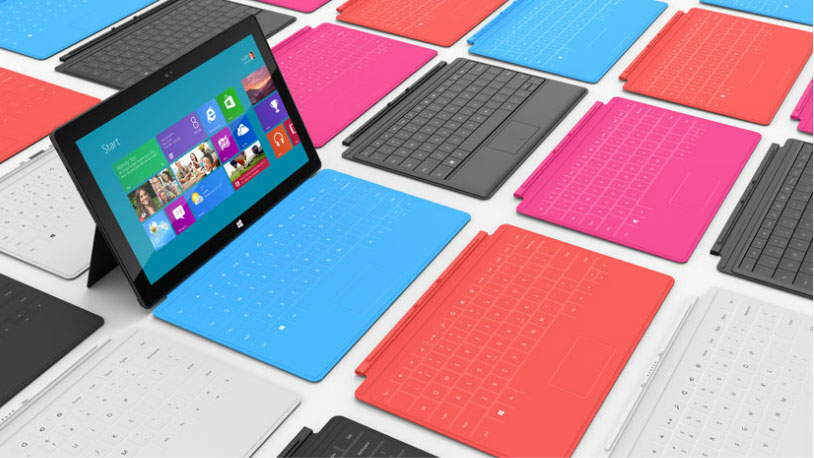Why the Surface tablet launch signals a bold new direction for Microsoft
Redmond hopes hardware innovation will drive software success

26 October 2012 will be a landmark day for Microsoft which signals a fundamental shift in the company's strategy.
Yes, it's the day that Windows 8 will be released to the world, but more significantly it's also the rumoured launch day for Surface - a bold new hardware platform which is indicative of a broader philosophical rethink for the Windows creator.
Since the announcement of Surface, Microsoft has been in fighting mood, and its old rival Apple is the focus of this new found aggression. Shortly after revealing Surface, CEO Steve Ballmer went on the offensive, telling CRN "We are not going to leave any space uncovered to Apple... Not the consumer cloud. Not hardware-software innovation. We are not leaving any of that to Apple by itself. Not going to happen. Not on our watch."
In the context of Surface, there's a not-so-subtle message of intent in Ballmer's choice of words. Microsoft believes it is ready to take on Apple at its own game - hardware focused innovation.
Although Microsoft has launched hardware products in the past, it has always had a software-first philosophy. Bill Gates' original genius was to make a platform agnostic operating system and ensure every PC manufacturer used it, creating a global monopoly of Windows powered machines for Microsoft developed software to run on. This focus on software over hardware was the key to the company's massive success.
When Steve Jobs returned to Apple in the late 90s he pursued a contrary approach, focusing on hardware first instead of software. While Microsoft had built up an enormous platform monopoly with its ubiquitous Windows operating system, Apple leveraged hardware innovation and superior product design to entice people into a walled garden where software-hardware exclusivity ensured that everything just worked.
In other words, while Microsoft was ruling the world by being hardware agnostic, Apple overthrew it by being hardware religious.
Get daily insight, inspiration and deals in your inbox
Sign up for breaking news, reviews, opinion, top tech deals, and more.
Back in the game
This strategy not only allowed Apple to play itself back into the game with the iMac and iBook, but ultimately led it to crack open and dominate brand new markets with the iPod, iPhone and iPad.
Apple proved that a hardware-first philosophy is not only a viable strategy for competing in existing markets; it's also a devastating advantage when it comes to capturing new markets ahead of your rivals. Jobs summarised this approach at the end of his keynote speech at the Macworld Conference and Expo in January 2007:
"There's an old Wayne Gretzky quote that I love; 'I skate to where the puck is going to be, not where it has been.' And we've always tried to do that at Apple."
The upcoming launch of Microsoft Surface, a hardware platform which not only appears to match the design quality of Apple's iPad but also threatens to surpass it in terms of innovation, is arguably the first significant move by the Redmond giant to react to Apple's recent dominance. Perhaps Microsoft is now ready to fully recognise the role that hardware innovation can play in driving software success.
This doesn't mean that Microsoft is going to completely abandon its hardware agnostic mentality, of course it's not. However, it seems the company has now acknowledged the importance of pushing its Windows 8 platform on both the hardware and software fronts.
Setting the standards
Surface is designed to set a benchmark for Windows 8 tablets which other manufacturers must strive to live up to. Microsoft hopes this will deliver a one-two punch which will simultaneously appease the ferocious appetite for hardware innovation that Apple has stirred up in the modern consumer, whilst also cultivating a Windows 8 software ecosystem that works seamlessly across the expanding breadth of computing devices that users now own.